Extinction: Are We Responsible?
EXTINCTION: ARE WE RESPONSIBLE? (ISSUE 167) FEBRUARY 24, 2015
By Diane Gold
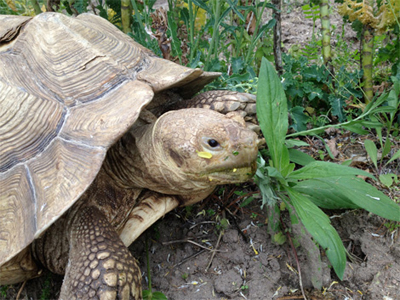 Let’s talk about Extinction and Loss Of Species, and are we responsible?
Let’s talk about Extinction and Loss Of Species, and are we responsible?
Yes, of course, we know that biology of a species, weather conditions, habitat destruction and ocean overuse, air quality or availability of whatever the species needs to breathe, food availability, water pollution, how the inhabitants of a planet nurture it and natural planetary cycle, all have to do with how long a species survives and how strong that species is.
Today’s article is written by our friend and colleague, Richard Oppenlander, D.D.S., dedicated researcher, who is one of the premier experts on how our food choices affect the sustainability of and species on our planet. He, in his very evidence-based and organized fashion, brings us information on how our food choices tie us to extinction and loss of species.
His last sentence is our ACTION STEP.
BIODIVERSITY AND FOOD CHOICE
by Richard Oppenlander (originally published at comfortablyunaware.com.)
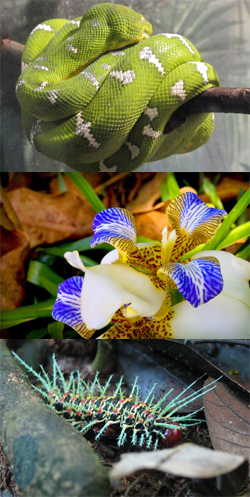 There needs to be a correction, and also modification of a particular concept, to the recently published article I had written for the North American Vegetarian Society (“Meat: no longer just a factory farm issue” in Vegetarian Voice 2012) regarding biodiversity loss.
There needs to be a correction, and also modification of a particular concept, to the recently published article I had written for the North American Vegetarian Society (“Meat: no longer just a factory farm issue” in Vegetarian Voice 2012) regarding biodiversity loss.
The “30,000 per year” extinction or loss of species statement I made is actually referring to species of animals, plants, insects—not simply animals (although the “animal” kingdom technically includes insects).
This figure was first brought to light by Harvard naturalist and emeritus professor of biology, Edward Wilson (The Diversity of Life, Harvard University Press 1992) and supported by Niles Eldridge (Life in the Balance, Princeton University Press 1998). Others such as Georgina Mace, Paul Ehrlich have extinction estimates as high as 70,000 to 130,000 species per year (7,000 to 13,000 times the background rate).
After speaking with and interviewing numerous researchers with the Species Survival Commission of IUCN (The World Conservation Union) and COBD (The Convention on Biological Diversity), about this topic over the past four months, I now feel there are many uncertainties surrounding attempts at quantifying the exact number of species becoming extinct per year. For this reason, it is more meaningful to view our planet’s current loss of species and the impact of our food choices in the following manner:
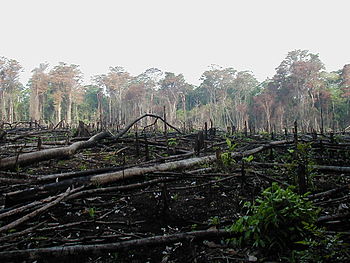 1) We are losing species of life as well as ecosystems on Earth at an unprecedented and alarming rate, estimated to be anywhere between 1,000 and 10,000 times the “background rate”—that which had been seen for the previous several thousands of years. Therefore, it is this massive rate of extinction rather than number of loss that becomes a more meaningful metric and cause for concern.
1) We are losing species of life as well as ecosystems on Earth at an unprecedented and alarming rate, estimated to be anywhere between 1,000 and 10,000 times the “background rate”—that which had been seen for the previous several thousands of years. Therefore, it is this massive rate of extinction rather than number of loss that becomes a more meaningful metric and cause for concern.
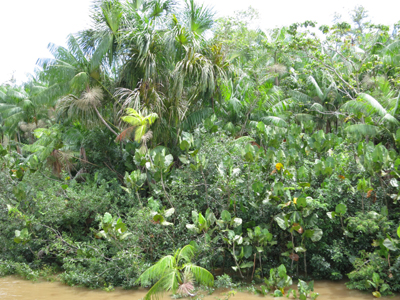 2) It is difficult, if not impossible, to accurately predict the number of species loss per year because of a number of factors. One of the largest unknowns is the exact amount of species that we have on earth, which is a needed component when attempting to determine total numbers of species loss when using an extinction prediction equation. This is one of the reasons the Species Area Curve Relationship method of extinction calculation has led to speculation and wide ranges of numbers of extinct species.
2) It is difficult, if not impossible, to accurately predict the number of species loss per year because of a number of factors. One of the largest unknowns is the exact amount of species that we have on earth, which is a needed component when attempting to determine total numbers of species loss when using an extinction prediction equation. This is one of the reasons the Species Area Curve Relationship method of extinction calculation has led to speculation and wide ranges of numbers of extinct species.
It is the feeling of most researchers today that although we have identified approximately 1.8 million species on our planet, there are most likely between 10 and 30 million that exist.
3) Regardless of the exact number of species becoming extinct per year, it is alarming at best and can be most attributed to loss of habitat—and the predicted future escalation will be due to habitat loss combined with climate change.
4) With estimates of 45% of all the land mass on Earth used by animal agriculture and 1 to 2 trillion fish extracted from our oceans each year (by fishing methods such as trawling, purse seine, long lines, explosives and other techniques that are damaging ecosystems)—eating animals (fishing and livestock production) is the largest contributing factor in habitat loss and constitutes the second largest sector implicated in anthropogenic [human caused] greenhouse gas emissions which lead to climate change.
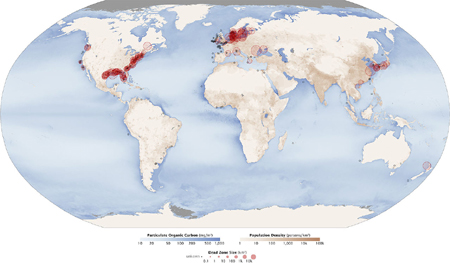 There has been widespread thought that marine species were more resilient to extinction and our further exploitation. However, there is finally a growing amount of evidence that fish and wildlife in our oceans are as, or more, vulnerable to extinction than many terrestrial and freshwater species. Extinction – Fish Vulnerable To Extinction
There has been widespread thought that marine species were more resilient to extinction and our further exploitation. However, there is finally a growing amount of evidence that fish and wildlife in our oceans are as, or more, vulnerable to extinction than many terrestrial and freshwater species. Extinction – Fish Vulnerable To Extinction
Despite continued massive harvesting of sea life from our oceans, it is generally agreed upon by researchers not affiliated with sustainable certifying organizations that the amount and distribution of threatened marine species is, at best, “poorly known.” Our demand to eat fish cannot be taken out of the equation when discussing our abuse of natural resources, eventual loss of species, and climate change.
Habitat loss is far and away the most pervasive threat to terrestrial animal species, impacting 86% of all mammals, 88% of amphibians, and 86% of all birds. One in every eight birds, one in every three amphibians and one in every four mammals is facing an extremely high risk of extinction in the near future. Overexploitation of animals for consumption remains a second major factor for extinction such as can be seen in wild meat trade in Africa and Southeast Asia and all hunting endeavors on land, globally.
Current biodiversity assessments (Millennium Ecosystem Assessment, IUCN Red List, and the Global Environmental and Biodiversity Outlook) now generally agree that land use change, modification of river flow, freshwater pollution, and exploitation of marine environments are the most significant drivers of biodiversity change and loss of species. Eventually, ocean acidification and climate change will become increasingly important. With overharvesting sea life in our oceans and raising livestock on land (grazing or CAFOs [factory farms]), our demand to eat animals and animal products remains the largest contributing anthropogenic factor to those accepted drivers of loss of species on Earth.

Let’s eat plants, not animals, and inspire others to do the same.
RICHARD OPPENLANDER
Dr. Richard Oppenlander is a researcher who studies the effects of food choices on health and environment. A dentist by day, he lectures about how animal agriculture is the biggest driver of global depletion and talks about solutions we can implement. He has written Comfortably Unaware and Food Choice And Sustainability, both flowing books with a wealth of scientific back up about how our food choices affect our land, oceans, water, air, soil, health. A copy of both books resides in my local public library ready to be read. And yours?
![]()
If you wish to share your story, please hit reply in your email program to be contacted.
If you need habit help, go to warriorsofweight-consulting.
![]()
FEEDBACK
We value your feedback very much.
Please leave a comment below.
Please LIKE us on the website and at
WarriorsOfWeight on Facebook.
You can also follow us on Twitter @warriorsoweight.
Thanks.
![]()
DIANE GOLD, PUBLISHER AND AUTHOR
Diane Gold, Founder of Warriors of Weight, Turning Habits Into Health, is a mentor in tai chi, kung fu and meditation, a music, fitness and stress expert, dedicated mom, studying plant-based nutrition in certificate course, peaceful conflict resolution and habit replacement.
She is so pleased to bring Richard Oppenlander. She says,
“Richard brings with him the honesty to speak about what we eat and how these choices affect our planet. He is always interested in the truth, and, at the same time, cares about the lives of animals. He offers the idea that becoming moderate will not work because we won’t be able to change our climate and our planet in time if we take our time. His message is clear, and that is to stop eating animals, fish, fowl, dairy and eggs.
“I second that, since I think it is the right way to live.
“And, finally, let us all take good care of ourselves, because we are so worth it!”
![]()







